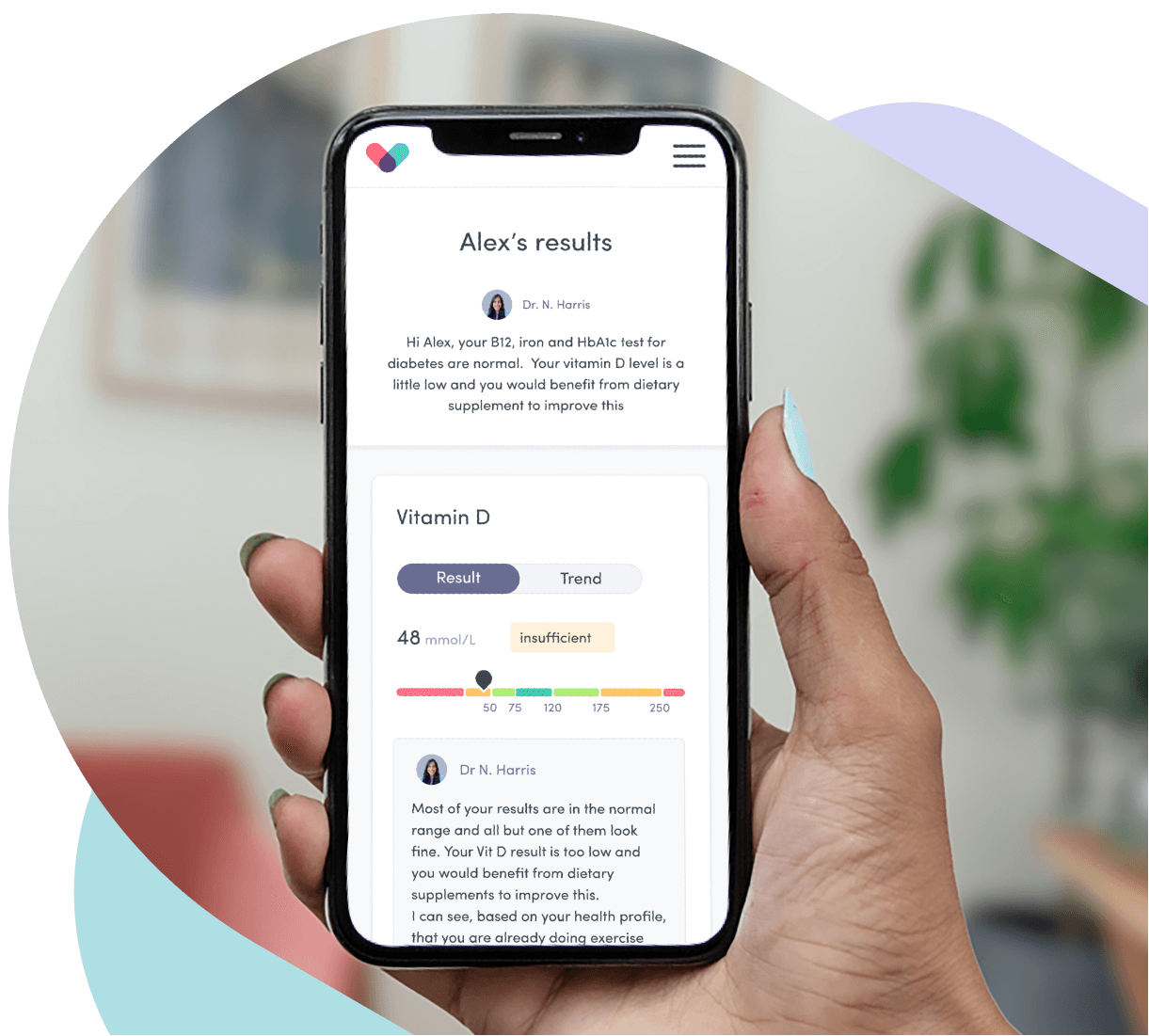How can a cholesterol blood test help you?
Cholesterol is a type of fat found in your cells. It’s essential for making hormones, vitamin D, and bile. But if your cholesterol is too high, it might increase your risk of heart disease.
There are no symptoms of high cholesterol, so you can only get insight into your cholesterol levels with a blood test. And when high cholesterol goes unchecked, it can affect your heart health. We recommend taking this test every 3 months if you have high cholesterol.
There are a number of things that can raise your cholesterol levels:
- eating foods high in saturated fats and trans fats
- a genetic condition called familial hypercholesterolaemia — your body can't remove LDL cholesterol
- lack of exercise
- smoking
- drinking too much alcohol
Combined with a GP report and advice, we help you understand how to improve or maintain your cholesterol levels.
What's covered in this blood test?
Cholesterol profile and apolipoproteins
Learn more
Cholesterol and apolipoproteins make up the fats and proteins that carry them in your blood. Combining both gives you more accurate insights into your heart disease risk.
HbA1c (diabetes)
Learn more
An HbA1c test helps you learn about your average blood sugar levels over the last 3 months. Knowing this information can help indicate your risk of pre-diabetes and diabetes.
CRP (high sensitivity)
Learn more
A CRP test checks for acute or chronic inflammation — a strong risk factor for heart disease. A raised CRP level is also linked to diabetes, obesity, high blood pressure, and some cancers.
Liver function
Learn more
High cholesterol might increase your risk of developing non-alcoholic fatty liver disease. This is when fat builds up around your liver, causing inflammation. This test checks your liver function, signs of inflammation, and damage.
Creatinine (kidney function)
Learn more
Your creatinine levels help indicate your kidney function. Your heart and kidneys are closely linked. Unhealthy kidneys put you at greater risk of heart disease, and the biggest causes of kidney disease are diabetes and high blood pressure, both of which affect your heart.
Collection method
Your test kit contains everything you need to collect your sample at home. Our instructions will guide you through it.
How it works

Do your test
Your kit arrives in 1-2 days. Find out how to collect your sample at home. You’ll need to fill 2 tubes for this test — around 10 drops of blood.

Fast, accurate results
Free post your sample to our lab and get your results in as little as 48 hours. Access your GP-reviewed report in your results dashboard.

Support your heart health
Our doctors give you evidence-based tips to help you improve or maintain your heart health. And you can access articles, podcasts, and recipes.
Want to know more?

Data protection
Your data is in safe hands. We use the latest encryption technologies and take our Data Protection obligations seriously.

What's included in your home testing kit?
our Thriva test kit includes:
- collection tube(s)
- plaster x 2
- return form x 1
- alcohol swab x 1
- lancet x 3
- prepaid envelope x 1
- cleansing wipe x 1
- collection tube label(s)
- protective plastic case x 1

How to collect your sample at home
Learn how to collect your finger-prick blood sample at home by following our instructions. You can access these on the app too. It takes around 30 minutes to complete the process at home.

Will a GP write your report?
Our doctors review your blood test results and upload a detailed report to your account dashboard. They also give you advice to help support your health or manage an existing condition.

How long does it take to get your results?
Our doctors aim to upload your results report to your account dashboard within 48 hours from the lab receiving your sample. Tests containing Omega-3 & 6 have a 10-day turnaround time after posting your sample.

How do you know when your results are ready?
We’ll email or text you to let you know your blood samples have been received, processed, and are ready to view on your results dashboard.
What else do you get?
Get a personalised health plan to improve, maintain, or develop healthy habits. Access on your dashboard.















